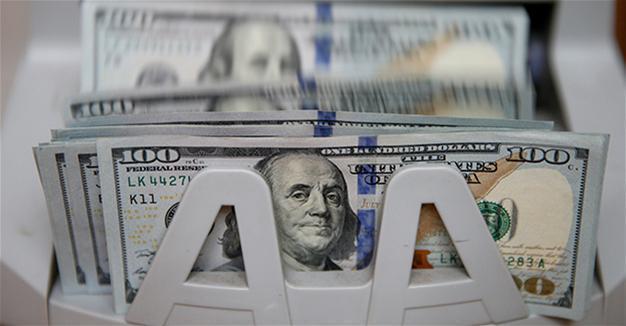Turkish Lira falls to historic low against US dollar
ANKARA

REUTERS photo
The Turkish Lira hit another record low against the U.S. dollar on Nov. 18, having fallen more than 8 percent so far this week, hit by a statement by the head of U.S. Federal Reserve chairwoman and signs of more discord between Turkey and Europe.
The greenback climbed up to 3.4078 against the lira, its historic high, before easing to 3.3970 liras as of 12:00 a.m. It further fell to 3.3714 liras after the markets closed on Nov. 18.
The dollar had stood at 3.3460 at the close on Nov. 17.
The Turkish Central Bank sold 10 billion liras with the repo tender with a Nov. 25 due date, netted 19.7 million liras of demand.
Turkey’s Economic Coordination Committee held an unscheduled meeting on Nov. 18 at 4 p.m. under Prime Minister Binali Yıldırım, state-run Anadolu Agency reported.
Deputy prime ministers, ministers related to the economy and a number of officials are included in the committee, which makes key decisions on the matter.
A recent spat between Ankara and the EU, Turkey’s main business partner, has played a role in the fall of the lira, according to experts.
President Recep Tayyip Erdoğan has accused Belgium of being a center for supporters of the outlawed Kurdistan Workers Party (PKK) and Fethullah Gülen, the main suspect behind the failed July 15 military coup attempt. Erdoğan has also accused Germany of not being committed to the fight against terrorism and harboring PKK members.
The Turkish president earlier this week suggested that Ankara could take its EU membership bid to a referendum.
U.S. Federal Reserve Chair Janet Yellen told the Joint Economic Committee of Congress on Nov. 17 that Donald Trump’s election to the presidency had done nothing to change the Federal Reserve’s plans for an interest rate increase “relatively soon.”
But interest rates futures for 2017 are now starting to price in one or more rate hikes next year, a sea change from before the election when they priced in a less than 50 percent chance of a 2017 rate hike, assuming the dovish Yellen would be extremely cautious in raising rates.
The dollar’s rising yield attraction is lifting the U.S. currency, which rose to 110.34 yen, its highest level since early June. The euro slumped to $1.0620, a low last seen almost a year ago.
The dollar’s index against a basket of six major currencies rose above its “double top” touched in March and December of 2015. The index now stands at its highest level since April 2003.
“Double top” is a technical analysis term describing a currency (or other liquid asset) rising to a high, falling, and then rising again to the same level. Breaking the double top is often seen as a bullish sign by technical analysts.
Meanwhile, Turkey’s benchmark BIST 100 index declined by 217.91 points to open at 74,918.31 on Nov. 18. It closed the day at 75,748, rising after the Central Bank sold off 10 billion liras with a repo tender with a Nov. 25 due date, netting 19.7 million liras of demand.
Among the sector indices, the leasing and factoring sector showed the greatest rise, 1.44 percent. The mining sector index fell hardest with a 0.83 percent decline.
One kilogram of gold increased to 131,600 liras due to the buying spree.
Kuveyt Türk Participation Bank, Istanbul Altın Rafinerisi, Rona Döviz, Gram Kıymetli Madenler and Uğuras Kıymetli Madenler were the top operators in gold trade.
